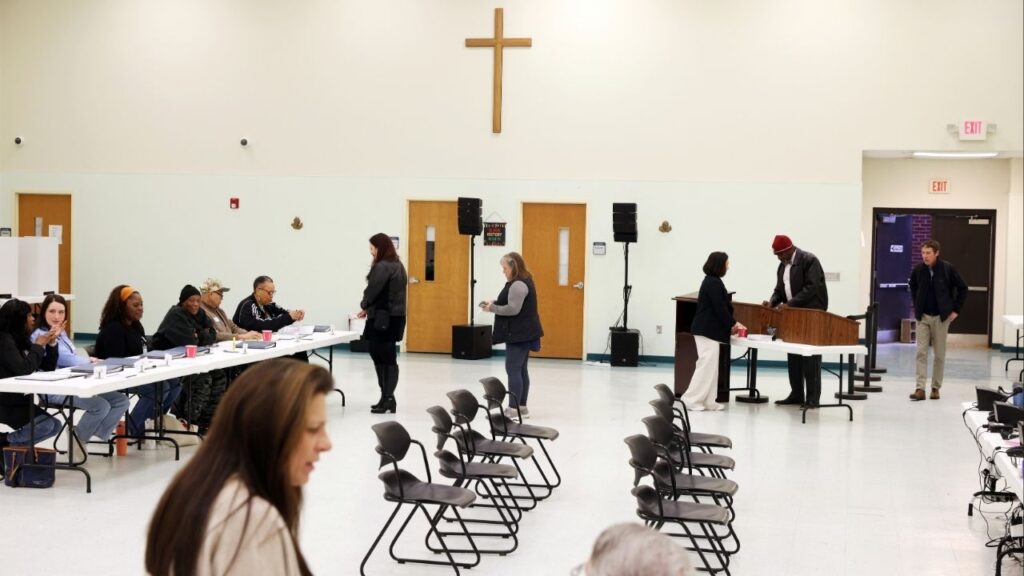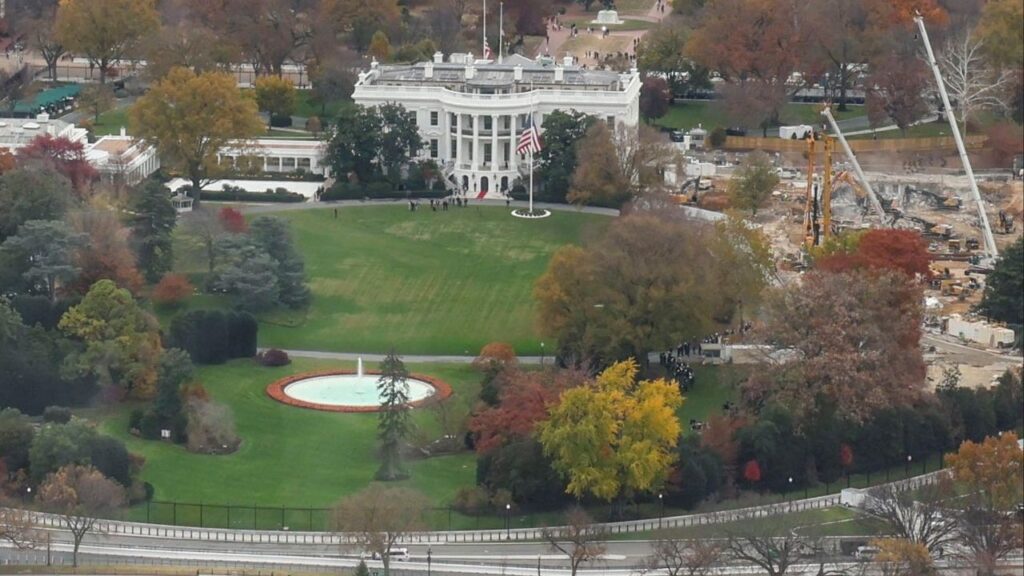The Clovis City Council may be forced to change from at-large to to district elections. (GV Wire/Jahz Tello)

- A Malibu attorney notified Clovis that it may be violating the California Voting Rights Act of 2001.
- All current city councilmembers live east of Clovis Avenue, and three live east of Temperance Avenue.
- The solution is to switch from at-large to district elections by 2026.
Share
|
Getting your Trinity Audio player ready...
|
At-large Clovis City Council elections could be drastically changing.
Although the 2024 at-large election remains unchanged, future elections may be decided by districts.

“(Clovis) needs to change the selection system. And why now? Because people came to me recently and asked me to pursue this now.” — Kevin Shenkman, voting rights attorney
Kevin Shenkman, a preeminent voting rights attorney from Malibu, sent the city a letter on Aug. 23 stating that its method of electing city councilmembers is illegal. He set an Oct. 14 date for a response.
“(Clovis) needs to change the selection system. And why now? Because people came to me recently and asked me to pursue this now,” Shenkman told GV Wire.
In his letter, Shenkman said he is representing a group called the Southwest Voter Registration Education Project, based in San Antonio, but with an office in California. Shenkman said there are members in Clovis, but he declined to reveal their names, citing potential retaliation.
Shenkman is known for sending letters to governmental districts up and down the state — from cities to school districts and special districts. He said he’s filed approximately 20 lawsuits in the last 15 years about election methods while sending out more than 100 letters.
The city council plans to discuss the issue at its Oct. 7 meeting.
Attorney: At-Large Elections Violate Voting Rights Act
The letter states that Clovis is violating the California Voting Rights Act of 2001 by holding at-large elections — where every voter in the city chooses city councilmembers on the same ballot.
“The City’s at-large system dilutes the ability of Latinos (a “protected class”) — to elect candidates of their choice or otherwise influence the outcome of the City’s elections. The City’s election history is illustrative,” Shenkman wrote.
Shenkman lists Clovis’ population as 120,124 with 30% of residents identifying as Latino.
The five-member Clovis City Council consists of four white members, and one of southeast Asian heritage. Three members are male, two are female.
Currently, all voters in the city can vote for two or three candidates on a given ballot. The only residency restriction is that a candidate has to live within Clovis.
A district system would presumably divide voters into five different geographical areas to chose one councilmember who lives in that district.
If the city moves to district elections, it could cause major changes to the makeup of the current city council. All members currently live east of Clovis Avenue, and three live east of Temperance Avenue.
In 2022, the city of Clovis changed its election dates from odd years in the primary election to even years in the general November election. Switching to district voting may be the next step.
Shenkman said switching to district elections would alleviate any violations of the California Voting Rights Act.
It would also likely create more candidates. This November, only incumbents Lynne Ashbeck and Vong Mouanoutoua are running for two positions. In 2022, 10 candidates ran for three slots.
“The political science tells us that in district-based elections, people are more likely to run. And that makes sense because the campaigns are much less expensive,” Shenkman said. “Minorities do better in district-based elections than they do in at-large.”

What About Jose Flores?
In his letter, Shenkman said that 2022 candidate Martin Salas “lost his bid for a seat on the Council despite significant support from Latino voters, due to a lack of support from non-Latino voters.”

“(Voting by district is) not a formula for fairness. It’s not a formula for equality and it’s not a formula for democracy.” — Jose Flores, who was a Clovis City Councilmember for more than two decades
He also cited unsuccessful 2017 candidate Paulo Soares who “was supported by Latino voters but lost due to a lack of support from non-Hispanic white voters.”
Soares, who goes by Paul, is Portuguese.
Shenkman explained that his experts analyzed the results, using ecological regression analysis, something accepted by a prior Supreme Court case. It does not assume Latinos would vote for a Latino candidate.
Curiously, Shenkman did not mention Jose Flores, a Latino Clovis city councilmember from 1999 through 2022.
“I’m not so sure that indicates Latino representation in terms of substantive representation. But that’s really a different conversation,” Shenkman said.
Shenkman said just because there is a Latino member of the board, it does not mean there is not racially polarized voting under at-large systems.
Flores, who did not run for re-election in 2022 and is police chief with the State Center Community College District, said Latino voice are heard in Clovis.
He opposes any change.
“It’s not a formula for fairness. It’s not a formula for equality and it’s not a formula for democracy,” Flores said.
Does At-Large Elections Create More Minority Officials?
The San Francisco Chronicle profiled Shenkman, and the CVRA last year.
The paper’s analysis found some cities that switched to district elections increased the number of elected Latinos.
“But in many other towns, the CVRA has been ineffective, resulting in boards as white as they were before or sometimes whiter,” the Chronicle reported.
The reporting also found “Housing becomes harder to build in many cities, because districts give NIMBYs more leverage to reject unpopular projects.”
Shenkman downplayed those findings.
“I wouldn’t take the Chronicle story as the gospel,” Shenkman said. He said the Chronicle story had a hostile tone, focusing on how many letters he’s written, and his compensation for such letters.
“The story of the California Voting Rights Act has been one of great success,” Shenkman said. “The result of that has been increased minority representation to an extent that I can’t think of any other structural change to an election system could accomplish.”
Shenkman said there is data to show increased minority representation with the change to district elections.
He said that more than 100 cities converted to district elections, usually because of his letters. Clovis Unified received a letter from Shenkman, and they will be holding district elections for the first time in November.
Fighting the call for change could be a costly propositions for local governments.
For starters, the law allows an attorney like Shenkman to collect attorney fees for the work performed to write a warning letter, capped at $30,000.
The Orange County Register reported that the city of Cypress settled its CVRA lawsuit for $835,000, while changing to district elections.
The city of Santa Monica fought a Shenkman-CVRA lawsuit, but lost in the state Supreme Court last year. The case is still pending in a lower court.
Council Reluctant, But May, Change
Drew Bessinger, city councilmember since 2017, begrudgingly says the city will have to change.
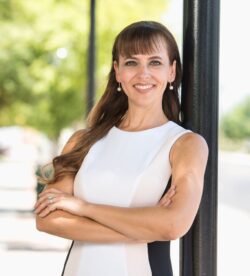
“This is not something the community of Clovis wants. My colleagues and I on our city council, in consultation with our legal counsel, are working through what this demand letter means for us.” — Clovis City Councilmember Diane Pearce
“There’s mountains that you have to die on and there are mountains that you just don’t need to even go to battle on,” Bessinger said.
He’s worried that districts would create a “tribal” mentality, where councilmembers only care about their own district and not the entire city.
“We do an excellent job making sure that that folks don’t get left behind,” Bessinger said.
Councilmember Diane Pearce, elected in 2022, looks forward to Monday’s discussion.
“This is not something the community of Clovis wants. My colleagues and I on our city council, in consultation with our legal counsel, are working through what this demand letter means for us.”
A white man, Bessinger said he is married to a Latina woman.
“When I go to family reunions, generally speaking, I’m the lone white person in the room, and that bothers me not a bit,” Bessinger said.
Future Elections?
If Clovis adopts district elections, it would have to devise a map within 180 days, Shenkman said.
Any map is likely to include one or more districts based west of Clovis Avenue. Current city councilmembers could be redistricted out of their current seats.
Three seats — Matt Basgall, Drew Bessinger, and Diane Pearce — are up for re-election in 2026. What potential district could go first?
Shenkman said the law is “not particularly clear on this,” but “historically underrepresented areas ought to go first.”
The new map would be implemented for the first time in November 2026.
Bessinger said he is not going to move, just to run again.
“This is the house I plan on dying in,” he said.
RELATED TOPICS:
Categories
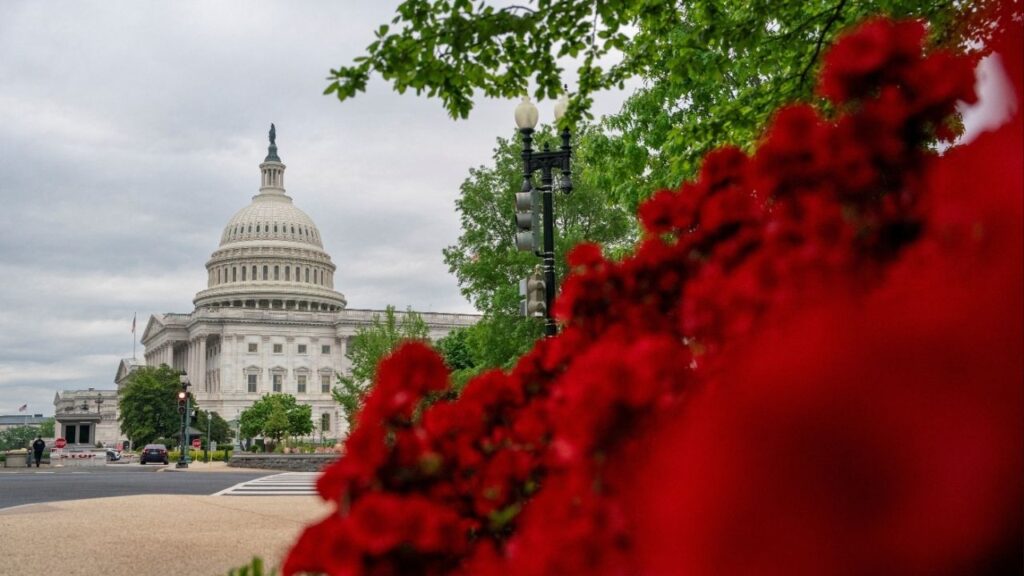
Eight US Senate Races to Watch in the 2026 Midterm Elections

US Kills Iranian Leader of Trump Assassination Plot, Pentagon Says
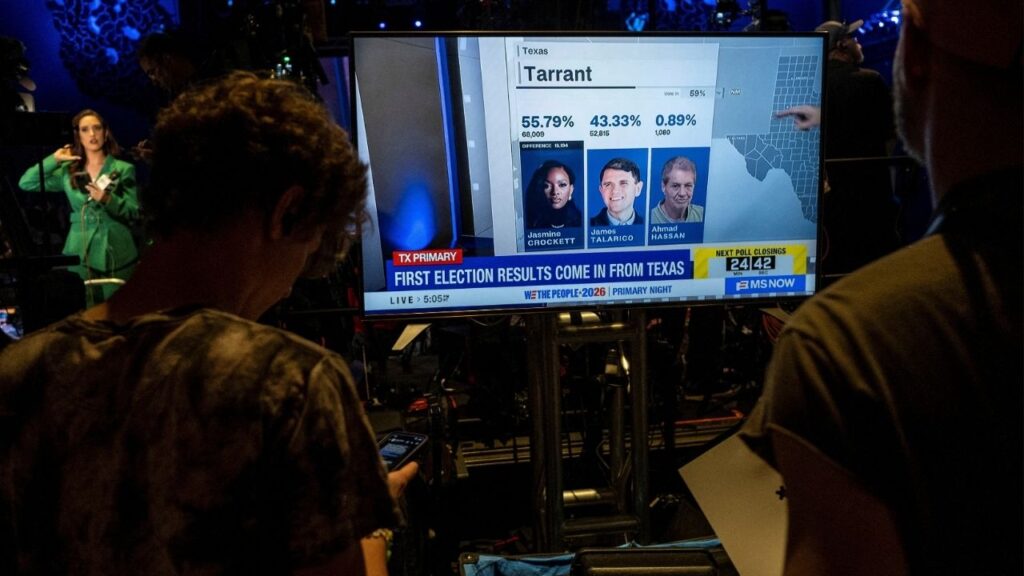
Four Takeaways From the First Primaries of 2026 US Midterm Elections

US Sub Sinks Iranian Warship off Sri Lanka, at Least 80 Dead







